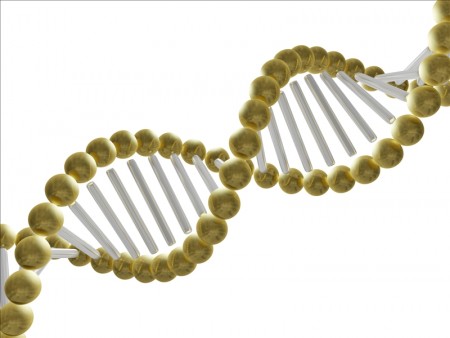When I was diagnosed with Stage 0 breast cancer in 2014, I met with a medical oncologist to discuss my family history. A few women on both sides of my family had died of breast cancer. My great grandmother, a great aunt, an aunt and a first cousin. My father died of lung cancer and his father of prostate cancer.
While my family’s cancer history was not alarming, it was strong enough that the doctor suggested I have genetic testing. My blood was screened for about 25 cancer gene mutations. Thankfully, they all came back negative.
I did not carry a genetic mutation (for the genes that were tested). It means I do not have an increased risk for cancer. It doesn’t mean I can forget about routine screening. It’s still important to get a regular mammogram and colonoscopy, for instance.
Two mutated genes, in particular, can increase the risk of a woman getting breast and ovarian cancer — BRCA1 and BRCA2. “They’re on two separate chromosomes,” says Jessica Cary, a certified genetic counselor at New England Cancer Specialists, “but they primarily function the same way.”
Men can have a BRCA mutation as well, putting them at a higher risk of male breast cancer and prostate cancer. Carrying one of the mutated BRCA genes may also put their daughters at increased risk. “I see a lot of people who have all this family history on their father’s side, but they’re not worried about it,” says Jessica. “We’ve seen
Finding out you have a gene mutation that increases your risk for cancer can be scary, really scary. But it doesn’t mean you will get cancer, says Jessica. “There are certainly people who have lived their entire life and never developed cancer. Our role [as genetic counselors] is to know what their risk is and then develop a specific management plan.”
[Tweet “Men can get breast cancer too, and pass on a mutated gene to their daughters”]
Warning signs of hereditary breast and ovarian cancer
According to the non-profit organization FORCE (Facing Our Risk of Cancer Empowered), 2.3 million women in the United States may be at risk for breast and ovarian cancer because of their family history. Ninety percent of people who are at increased risk for hereditary cancer have no idea.
These are some of the warning signs of hereditary and ovarian cancer:
- Ovarian or fallopian tube cancer at any age
- Breast cancer at age 50 or younger
- More than one breast cancer diagnosis
- Both breast and ovarian cancer
- Triple negative breast cancer
- Eastern European (Ashkenazi) Jewish ancestry and a history of breast or ovarian cancer
- Male breast cancer
- More than one family member on the same side of the family who has had
- breast cancer
- ovarian or fallopian tube cancer
- prostate cancer
- pancreatic cancer
FORCE focuses on raising awareness about hereditary breast, ovarian and related cancers. In addition to the resources it provides on its website, the organization has established local support groups across the country for people who are at increased risk of these cancers.
Jessica and Katherine Lafferty, a certified genetic counselor at Maine Medical Center, recently started the first group in Maine — at the Cancer Community Center in South Portland.
The group will meet quarterly. At the first meeting last October, attendees decided their focus would be educational. “It’s going to be all about knowledge and information seeking,” says Jessica.
At the second meeting in January, a dietitian talked about nutrition and a genetic counseling intern gave a general overview of genetics. “What makes a family history suggestive of a genetic mutation,” says Jessica. “What is genetic testing and what screening is available for these families.”
For more information about the group and future meetings, contact the Cancer Community Center or visit its website.
Cancer Community Center
778 Main Street (Route One)
South Portland, Maine
(207) 774-2200
Thank you for reading this post about hereditary breast and ovarian cancer. If you want to learn more, the FORCE website has tons of good information.
You may also be interested in reading about another gene mutation, which causes Lynch Syndrome. It is responsible for about three percent of all colorectal cancers and in women, from two to five percent of all endometrial cancers. It also increases the risk of other cancers. So many of us have been touched by cancer in some way. Have you? ~Diane


Diane, this is such important information! Too many women are checked only for BRCA 1 and 2 when there are so many other genetic mutations that can have an impact. Or too many women and men are unaware of their family history and potentially heightened risk. You’ve done a great public service by writing about this!
Thank you Roxanne. When I met with the medical oncologist, he stressed how important it can be to know your family medical history.
I too had breast cancer and underwent the genetic testing several years later. I did not think I had a genetic risk because the cancer in my family history was on my father’s side. My surgeon convinced me that it was wise to get the testing nevertheless. I am very glad that I did, especially since it came out negative. But Diane is right in emphasizing that we still need to continue routine testing. Cancer is not just a genetic disease! Thank you for this article Diane.
You’re so right Sally. In fact, I have a few tests I need to schedule. I’m good at passing out advice, but when it comes to taking care of myself, I am sometimes guilty of procrastinating.
I try to remember the admonition in the airline safety talk to remember to put on your oxygen mask before you reach to help others!